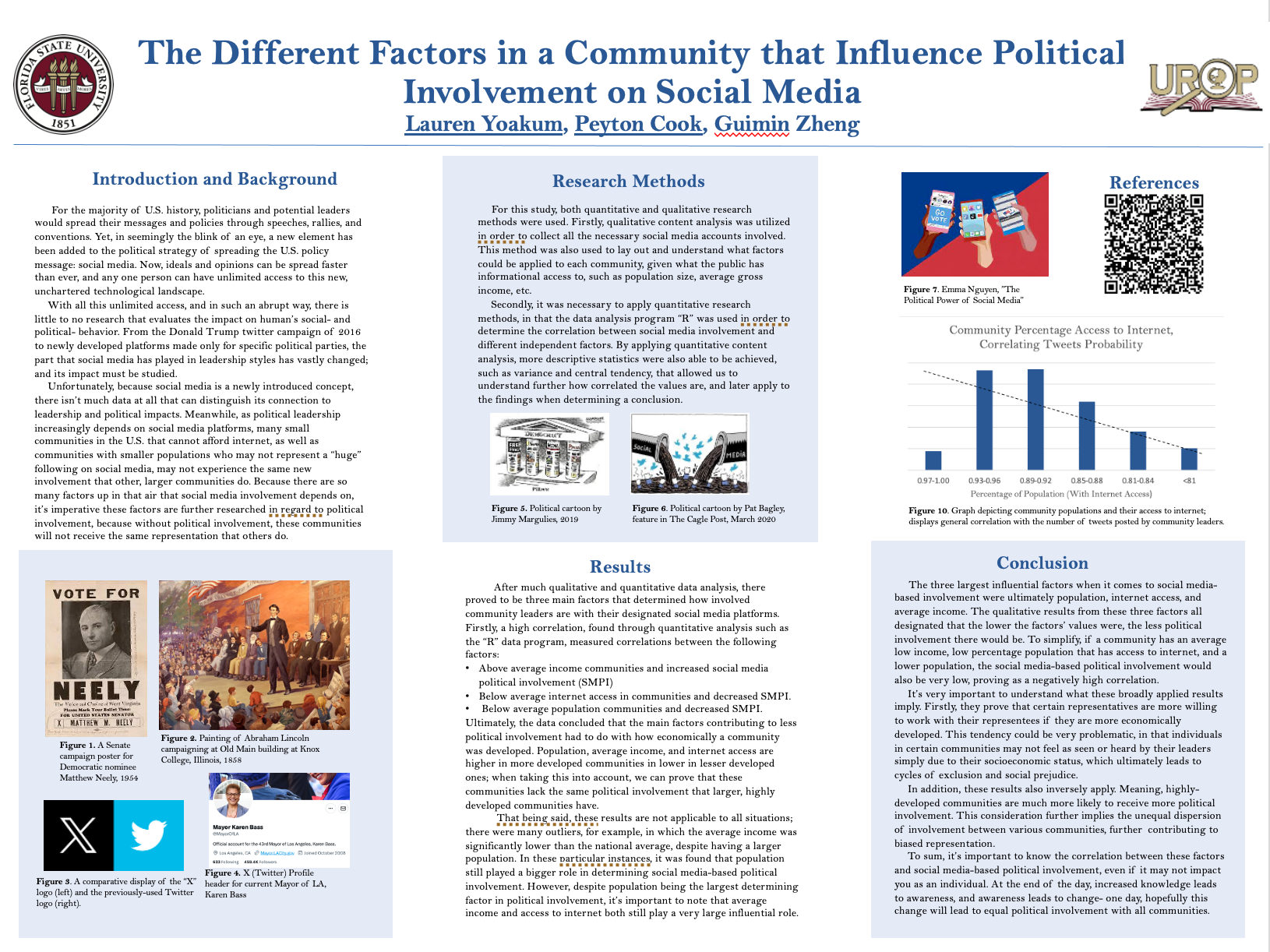Research Symposium
24th annual Undergraduate Research Symposium, April 3, 2024
Lauren Yoakum Poster Session 2: 10:45 am - 11:45 am/122

BIO
My name is Lauren Yoakum, and I am currently a first-year Honors student from Tampa, Florida. I chose to participate in UROP to explore how research works, so that I may soon conduct some of my own.
I love Environmental Science and Geology, and plan to use my degrees to pursue a career in Paleoecology and Paleontology. On the side, however, I greatly enjoy learning more about politics and citizen dynamics, as expressed through my active participation in Model UN, as well as my UROP research project.
The Different Factors In A Community That Influence Political Involvement On Social Media
Authors: Lauren Yoakum, Guimin ZhengStudent Major: B.S. Environmental Science, B.S. Geology
Mentor: Guimin Zheng
Mentor's Department: Public Administration and Policy Mentor's College: College of Social Sciences Co-Presenters:
Abstract
For the majority of U.S. history, politicians and potential leaders would spread their messages and policies through speeches, rallies, and conventions. Yet, in seemingly the blink of an eye, a new element has been added to the political strategy of spreading the U.S. policy message: social media. Now, ideals and opinions can be spread faster than ever, and any one person can have unlimited access to this new, unchartered technological landscape.
With all this unlimited access, and in such an abrupt way, there is little research that evaluates the impact on human’s social- and political- behavior. From the Donald Trump twitter campaign of 2016 to newly developed platforms made only for specific political parties, the part that social media has played in leadership styles has vastly changed; and its impact must be studied.
Unfortunately, because social media is a newly introduced concept, there isn’t much data at all that can distinguish its connection to leadership and political impacts. Meanwhile, as political leadership increasingly depends on social media platforms, many small communities in the U.S. that cannot afford internet, as well as communities with smaller populations who may not represent a “huge” following on social media, may not experience the same new involvement that other, larger communities do. Because there are so many factors up in that air that social media involvement depends on, it’s imperative these factors are further researched in regard to political involvement, because without political involvement, these communities will not receive the same representation that others do.
Keywords: Political involvement, social media, Twitter


